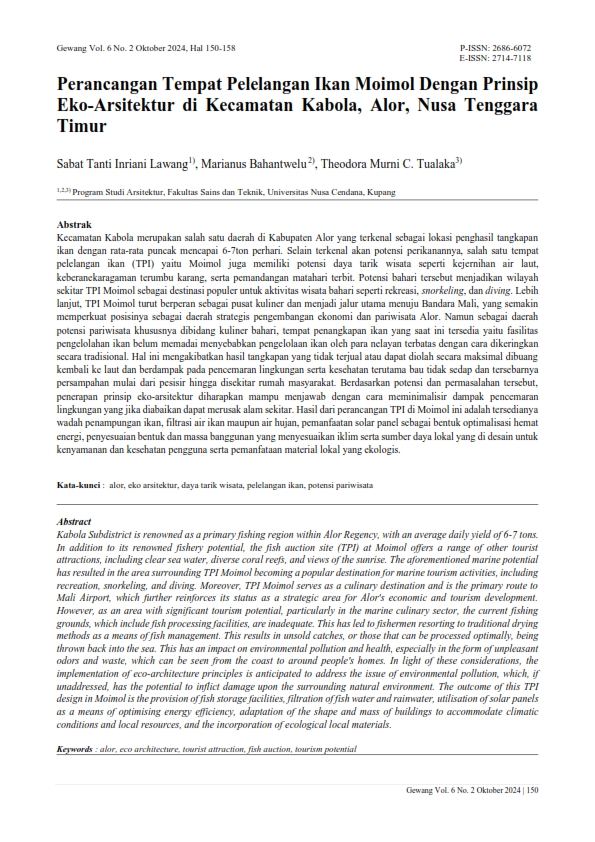Perancangan Tempat Pelelangan Ikan Moimol Dengan Prinsip Eko-Arsitektur di Kecamatan Kabola, Alor, Nusa Tenggara Timur
Main Article Content
Abstract
Kabola Subdistrict is renowned as a primary fishing region within Alor Regency, with an average daily yield of 6-7 tons. In addition to its renowned fishery potential, the fish auction site (TPI) at Moimol offers a range of other tourist attractions, including clear sea water, diverse coral reefs, and views of the sunrise. The aforementioned marine potential has resulted in the area surrounding TPI Moimol becoming a popular destination for marine tourism activities, including recreation, snorkeling, and diving. Moreover, TPI Moimol serves as a culinary destination and is the primary route to Mali Airport, which further reinforces its status as a strategic area for Alor's economic and tourism development. However, as an area with significant tourism potential, particularly in the marine culinary sector, the current fishing grounds, which include fish processing facilities, are inadequate. This has led to fishermen resorting to traditional drying methods as a means of fish management. This results in unsold catches, or those that can be processed optimally, being thrown back into the sea. This has an impact on environmental pollution and health, especially in the form of unpleasant odors and waste, which can be seen from the coast to around people's homes. In light of these considerations, the implementation of eco-architecture principles is anticipated to address the issue of environmental pollution, which, if unaddressed, has the potential to inflict damage upon the surrounding natural environment. The outcome of this TPI design in Moimol is the provision of fish storage facilities, filtration of fish water and rainwater, utilisation of solar panels as a means of optimising energy efficiency, adaptation of the shape and mass of buildings to accommodate climatic conditions and local resources, and the incorporation of ecological local materials.
Downloads
Article Details
This license enables reusers to distribute, remix, adapt, and build upon the material in any medium or format, so long as attribution is given to the creator. The license allows for commercial use

